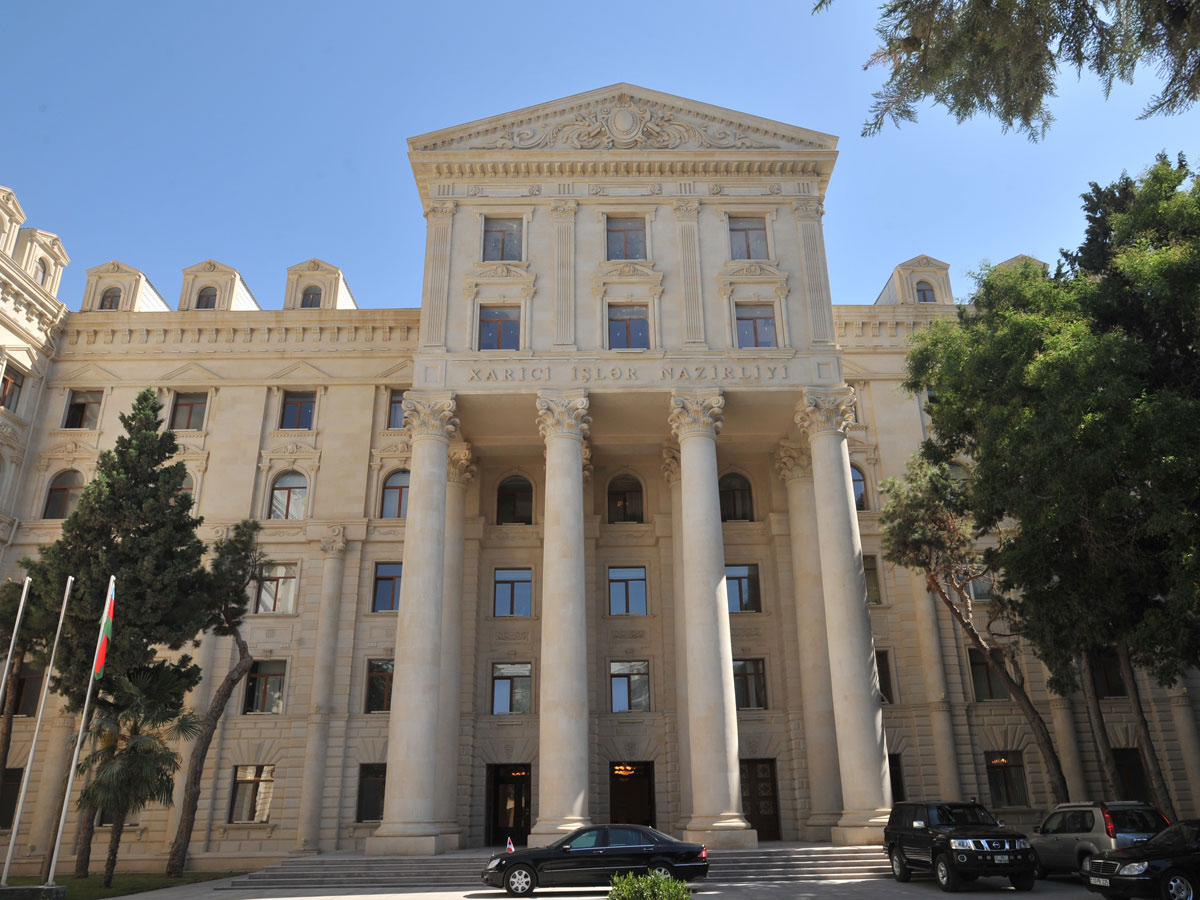Baku, Azerbaijan, July 1
By Leman Zeynalova – Trend:
Armenia has an aggressive military doctrine and continues to pursue a militaristic policy, Spokesman for the Azerbaijani Foreign Ministry Hikmat Hajiyev told Trend July 1.
Hajiyev was commenting on the statements made by the Armenian foreign minister in Germany and deputy foreign minister at the OSCE security conference.
"As a country subjected to aggression and occupation by Armenia, Azerbaijan is the most interested party in the soonest settlement of the Armenia-Azerbaijan Nagorno-Karabakh conflict through negotiations and in the return of Azerbaijani internally displaced people, who have been subjected to ethnic cleansing, to their native lands,” he added.
“But the Azerbaijani people and Azerbaijan will never agree the lands to remain under occupation,” Hajiyev added. “The illegal presence of the Armenian armed forces in the occupied Azerbaijani territories and Armenia’s continuing aggression against Azerbaijan with the use of force remain the main threat to peace and security in the region.”
“Moreover, Armenia has an aggressive military doctrine and continues to pursue a militaristic policy,” he said. “According to Global Militarization Index of Bonn International Center for Conversion, Armenia ranks first in Europe and the third in the world in terms of militarization."
Hajiyev added that Armenia’s military expenditures make up 4.1 percent of per capita income of this country.
"For comparison, this figure is 3.6 percent in Azerbaijan,” he said. “The funds that Armenia spends on militarization and the arms race could be spent at solving the country’s important social and economic problems."
“If the Armenian foreign minister and his deputy want peace through deeds, rather than words, then the Armenian troops must be withdrawn from the occupied Azerbaijani territories,” Hajiyev added. “The sooner this is done, the faster peace can be ensured in the region. So, the Armenian side must make a choice and let’s see which way they will choose.”
He stressed that Azerbaijan enhances and will enhance defense capabilities to ensure the protection of its territories and the safety of citizens.
The conflict between the two South Caucasus countries began in 1988 when Armenia made territorial claims against Azerbaijan. As a result of the ensuing war, in 1992 Armenian armed forces occupied 20 percent of Azerbaijan, including the Nagorno-Karabakh region and seven surrounding districts.
The 1994 ceasefire agreement was followed by peace negotiations. Armenia has not yet implemented four UN Security Council resolutions on withdrawal of its armed forces from the Nagorno-Karabakh and the surrounding districts.
---
Follow the author on Twitter:@Lyaman_Zeyn






